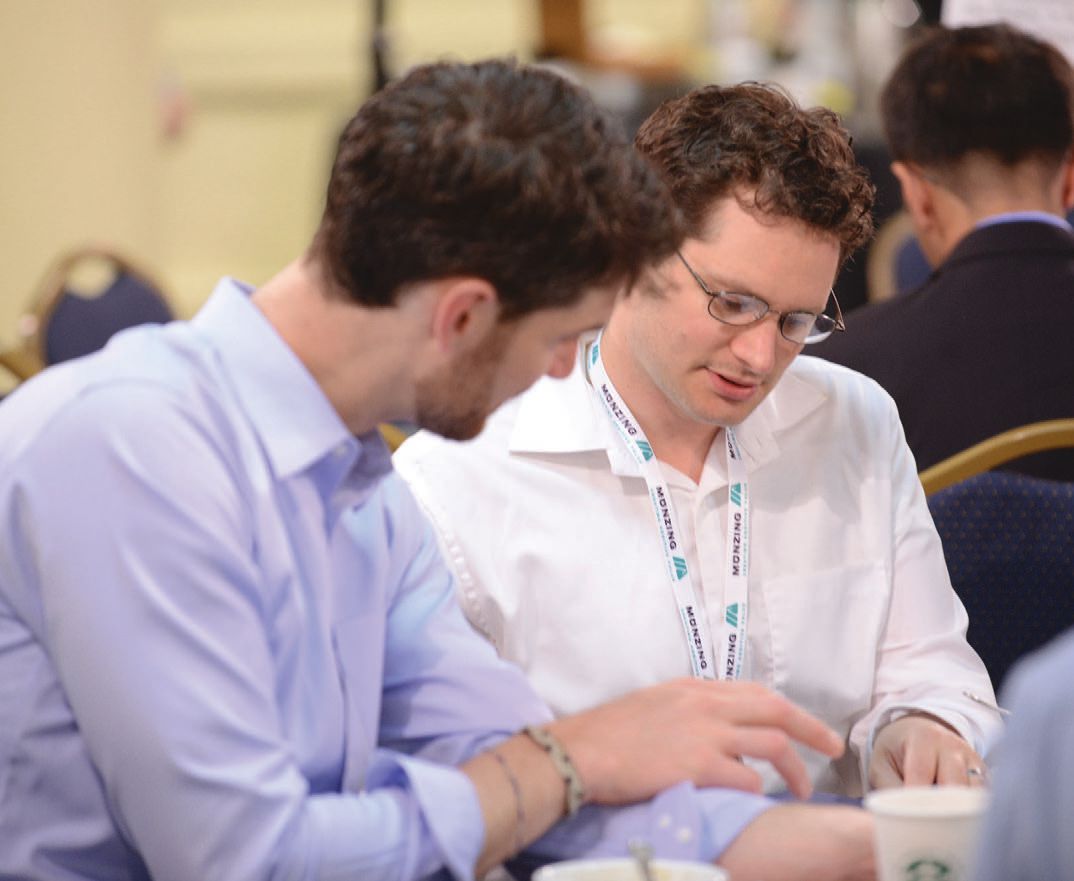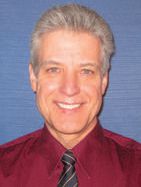Networking on the road
Ken Pelczarski | TLT Career Coach May 2014
Conventions, trade shows and technical meetings are great opportunities to advance your career.

You never know if the next contact you make will have a positive impact on your career.
www.canstockphoto.com
WITH THE 69TH STLE ANNUAL MEETING & EXHIBITION in Lake Buena Vista, Florida, upon us May 18-22, I thought this would be an excellent time for this topic. I am attending my 21st consecutive STLE annual meeting, and the networking opportunities at this event are invaluable to my career.
Whether you are networking for career purposes, new suppliers, technical information or problem-solving, there is no better venue for a lubricant industry professional than the STLE annual meeting. This article focuses on networking for your career, although most networking principles are similar regardless of purpose.
When networking at conventions, trade shows and technical meetings, your approach will be different as an employed versus unemployed individual. If you are employed in your field, you will still network proactively but will be highly discreet and more select with whom you network. You can minimize the risk of word getting back to your employer by (1.) stressing confidentiality to your contacts, (2.) not appearing desperate to change jobs, (3.) not bad-mouthing your current employer and (4.) talking to professionals you believe you can trust.
A recommended approach is to emphasize how your current job has benefitted your career and describe the specific type of new job situation you desire. Avoid subjective statements and stay factual regarding negatives with your current employer, which means you can talk about recent downsizing, management changes, how your role has changed, you are being asked to relocate, etc.
Here are a few questions to ask your contacts when career networking:
•
What kind of position do you think I am best suited for?
•
What do you think are my most marketable skills?
•
Are my career goals realistic?
•
Does your company employ people with my background?
•
Is there anybody else in your company or your network who can assist me with my career goals?
•
Do you know of any companies where my experience would fit in well?
Below are recommendations for planning, preparation and approaches involved with career networking in three excellent venues.
INDUSTRY CONFERENCES
This is an outstanding venue for networking. At STLE, for example, there will be some 1,400 worldwide attendees and plenty of opportunities to network because most attendees (1.) are there for an extended period (1-5 days), (2.) are also there to network and (3.) have time available in their busy schedules.
To get the most out of this opportunity, you should:
Plan ahead. Obtain a registration list of companies and individuals attending the convention (STLE has this information posted at
www.stle.org) and list those by priority level with which you want to network. Research job titles of attendees with target companies through professional contacts and LinkedIn. Schedules fill up fast and time is limited, so contact individuals early by email or telephone to set appointments. Alert contacts also through LinkedIn messages or invitations stating that you look forward to seeing them at the convention.
Prepare materials. Especially if you are actively job searching, bring documents such as a resume, cover letter, accomplishment summary and recommendation letters. Because networking should be reciprocal, have information handy on items such as STLE’s annual meeting, STLE section events, lubricant industry activities and industry news. If possible, bring specific information to share with target network contacts such as news items and competitor information within their field.
Be proactive. At STLE’s annual meeting, spend time in high-traffic areas—the registration desk, the central message boards and the exhibition. Attend receptions and social outings. Pay attention to name tags, and don’t hesitate to say a quick hello. If you see individuals you want to network with, let them know you have career-related questions for them. Arrange to connect later if they cannot discuss immediately. Be careful not to push too hard, as most attendees are tightly scheduled. Attempt to track down preplanned target contacts by visiting their company exhibits, talking to their co-workers and colleagues and checking program schedules.
Be visible. A great pathway to effective networking is being noticed by giving your time and talent to benefit industry organizations. Within the STLE annual meeting venue, consider (1.) teaching an education course, (2.) presenting at a technical session, (3.) chairing or co-chairing a technical session, (4.) volunteering as an education course assistant and (5.) helping at the STLE membership booth. STLE offers these and other opportunities to easily interact with professionals you want to network with. If you are actively looking for a new position and your search is not confidential, add visibility by posting your resume on the central message board.
TRADE SHOWS & EXHIBITIONS
This is a great venue for networking because of opportunities to meet new and established contacts in a centralized location, although many visits will only be quick introductions since company representatives are focused on generating sales leads with potential customers. There is ample time to network since most trade shows run all day long for several days or more (STLE’s exhibition is open for 13.5 hours over three days).
Plan ahead. Obtain the list of companies exhibiting at a trade show and list target companies by priority level with which you want to network. It is often difficult to obtain the names of individual representatives in advance for exhibiting companies (STLE’s annual meeting is an exception). If you find individual names, research their job titles through professional contacts and LinkedIn. Since employees of exhibiting companies spend the majority of their time at exhibit booths and in meetings with customers (except at a convention that offers other activities), it is difficult to set up appointments ahead of time unless you have an established contact.
Prepare materials. When attending trade shows, plan to bring the same materials you would for networking at conventions as described above. You may even stimulate a fruitful networking discussion by bringing STLE-related information to a non-STLE trade show.
Be proactive. Pursue your target contacts by visiting high-priority companies first since you may need to revisit a booth several times in order to spend time with a helpful contact. On the one hand, you want to be aggressive in meeting people and introducing yourself at exhibit booths. On the other hand, you want to be careful to approach company representatives at a time when they are not involved with customers. Once you begin a conversation, emphasize that you will not stand in the way of the contact’s discussions with potential sales leads. At the very least, exchange contact information and arrange for further discussions during the meeting or afterward. If a contact seems receptive to helping, you might want to leave your resume and other documents.
TECHNICAL MEETINGS
This is an excellent venue for networking, although time is limited when compared to conventions and trade shows. A typical STLE Chicago Section monthly meeting is like most such meetings, with a social hour followed by dinner and a technical presentation.
Primary networking goals are to (1.) update contacts on your career status, (2.) obtain ideas from others for pursuing your career goals, (3.) offer career ideas and assistance to other professionals and (4.) meet new people and exchange contact information for future discussions.
Networking at technical meetings does not involve much pre-planning or materials preparation, although it is acceptable to bring copies of your resume to distribute to select contacts if you are actively job searching. The main theme, as with other networking venues, is to be proactive while at the same time being discreet, professional and not overly aggressive. During social hours, dinner or post-meeting, you will likely be laying groundwork for future discussions as opposed to accomplishing a lot at the meeting itself.
After successfully networking at these events, proper follow up is critical to maintain a strong base of network contacts and to increase your chances of positive networking results.
Here is a summary of tips and goals for career networking in the above venues:
•
Research attendance list ahead of time
•
List and prioritize target companies and individuals
•
Learn job titles of target contacts
•
Arrange networking appointments in advance
•
Prepare career materials for distribution
•
Post your resume on a central message board if you’re unemployed
•
Introduce yourself and explain your desire to network
•
Confirm job title and employer of your contact
•
Do not ask for a job directly
•
Describe your career situation, skill set, and goals
•
Acquire company and industry information related to your career goals
•
Ask for referrals of individuals who can help you
•
Reciprocate by helping others
•
Offer to introduce people from your network
•
Do not interfere if other business is being conducted
•
Be respectful of a person’s time
•
Exchange business cards and other materials
•
Arrange for further discussions
•
Make contact again as agreed upon
•
Thank network contacts for assistance
•
Provide promised materials and information
•
Keep in touch regularly.
Your career will always benefit in some way from professional networking at industry events. You never know if the next contact you make will have a positive impact on your career!
 Ken Pelczarski is owner and founder of Pelichem Associates, a Chicago-based search firm established in 1985 and specializing in the lubricants industry. You can reach Ken at (630) 960-1940 or at pelichem@aol.com
Ken Pelczarski is owner and founder of Pelichem Associates, a Chicago-based search firm established in 1985 and specializing in the lubricants industry. You can reach Ken at (630) 960-1940 or at pelichem@aol.com.